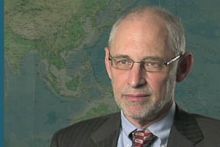What Drives Chinese Foreign Policy: Vulnerability or Ambition?
Andrew Nathan - Class of 1919 Professor of Political Science, Columbia University
The Council is pleased to present the 54th Annual Edward H. Hume Memorial Lecture.
Please RSVP to eastasian.studies@yale.edu by January 30th
China’s ambition to achieve great power status faces daunting challenges. At home, regime security and territorial integrity are threatened by forces of social and cultural change that are connected to China’s embrace of globalization. Around its borders, China contends with twenty immediate neighbors, some threateningly strong and others dangerously unstable. The wider Asia-Pacific region churns with complex political and military issues. And China’s prosperity and political stability are increasingly dependent on global markets over which Beijing exerts little control. In all of these arenas China faces the dominating presence of the United States, whose intentions it does not trust. These elements of vulnerability form the chief drivers of China’s foreign policy. Despite its growing influence, China’s prospects for dominance are weaker and its interest in the global status quo stronger than proponents of the “China threat” theory recognize. Although miscalculation could lead China and the U.S. toward confrontation, there are good prospects that wise management of the relationship can nurture a new equilibrium in Asian-Pacific security relations.
This annual lecture in honor of Dr. Edward H. Hume is made possible by the generosity of his family and many friends. Dr. Hume devoted much of his long and vigorous life to working in China and elsewhere in the cause of health care and medical training. He graduated from Yale College in 1897, and received his medical degree four years later from Johns Hopkins University. He worked in India from 1903 to 1905 before going to China, where he founded the Hsiang-ya Medical School and Hospital under the auspices of Yale-in-China in Changsha.

